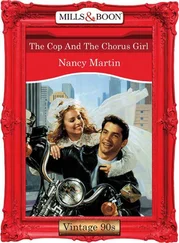“I don’t think so. Like you said, there were lots of other people there at the same time, including some of the best homicide detectives in the nation,” Disher said, heading for the door. “I wouldn’t worry about it, sir.”
Disher walked out of the office. But he could feel Stottlemeyer’s gaze on his back like a heat lamp.
I picked up Monk at nine on the dot and we drove over the Golden Gate Bridge to Marin County.
The lanes going into San Francisco from Marin County were clogged with the last of the rush-hour commuters, Starbucks coffee in their dashboard cup holders, Bluetooth devices in their ears, and NPR playing on their radios.
How do I know what station they were listening to on their radios? Because I know Marin County residents are well educated, own at least one Bob Dylan or Van Morrison album, and are notoriously liberal for people with so much money.
And because I like to embrace clichés that have some truth to them and I enjoy making broad generalizations that support my biases. If you haven’t learned that about me by now, you haven’t been reading very closely.
The Barnes & Noble smelled more like a coffeehouse than a bookstore. The tables of their café were full of young, well-dressed people hunched over their MacBooks, idly picking at pastries and sipping their hot drinks, trying to look busy and deep in deep thoughts.
Phil Atwater wasn’t among the self-consciously studious in the café, probably because the menu was too expensive for a man whose unemployment checks had just run out. He was getting his gourmet coffee from McDonald’s and slipping a Starbucks cardboard heat sleeve around the cup that didn’t entirely hide the Golden Arches. We found him drinking his coffee in an easy chair at the farthest corner of the store, where he was reading a book entitled The Thirty Steps to Becoming a Millionaire in Thirty Days.
“Is one of the steps murdering your father-in-law?” Monk asked.
Phil looked up at us, dropped the book, and started to get up.
“Mr. Monk, Ms. Teeger, fancy bumping into you here. I just stopped in to browse a bit before work. I’d rather spend my time here than stuck in traffic. But I’d better get going-”
“You can sit down, Phil,” I interrupted. “We know you were fired from your job months ago.”
“I wasn’t fired, I was downsized,” he said, sitting down again. “There’s a difference. It had nothing to do with my job performance.”
“Does your wife know?” Monk asked. I noticed Phil had ignored Monk’s first, provocative question.
“I can’t bring myself to tell her. It’s humiliating.”
“So you have been hiding out here,” I said.
“I’ve been using this as my base of operations, reading the want ads and applying for jobs. I’ve had a few interviews, but nothing has come of it. There’s not a big demand for guys like me.”
“What do you have to lose by telling your wife the truth now?” I asked.
“Her respect,” Phil replied. “I still have my pride.”
“Or you don’t want her to find out your darker secret,” Monk said. He drifted over to a cardboard display riser of Murder, She Wrote paperbacks that were stacked cover-out, four or five books to a pocket shelf.
“Like what?” Phil asked.
“That you murdered your father-in-law so you could get his inheritance,” Monk said, adding and subtracting paperbacks from one shelf to another so there were an equal number in each stack.
“I’m unemployed,” Phil said. “That doesn’t make me a killer.”
“You knew when your wife was leaving the house with the kids,” I said. “So you went back home, hit Peschel over the head, and tossed him in the pool, then tried to make it look like he jumped in himself in a fog of dementia.”
“Fog of dementia?” Phil chuckled ruefully. “You make it sound so mild, almost poetic. You try living with a delusional, gutter-mouthed old coot who thinks he’s still tending bar in a Tenderloin dump filled with hookers and drunks. I’d sit across from him and he wouldn’t know if I was one of his scumbag boozers, or someone shopping for a killer, or a cop he could sell them all out to.”
“So you killed him to put him out of his misery and yours,” I said.
“If I killed him, which I didn’t, what makes you think I’d admit it to you now?”
“Because if you did murder him, I’ll find out anyway,” Monk said, still shifting books around. “I was hoping you’d save me the trouble. I have a lot of cases to deal with as it is.”
“Sorry to disappoint you, but the only thing I’m guilty of is pride and cowardice.”
“And shoplifting,” Monk said.
“That’s not true,” Phil said.
“Then why did you peel the price tag off that book and remove the magnetic theft strip from the spine?”
“I didn’t,” he said.
Monk gestured to the floor with the Murder, She Wrote paperback that was in his hand. “You tried to kick them under your seat but the sticker stuck to your shoe.”
Phil looked down. Sure enough, the price sticker was stuck to the heel of his scuffed leather dress shoe.
“So what? The guy who wrote this book has already made his million bucks,” Phil said. “He doesn’t need twenty more from me.”
“That’s how a life of crime begins,” Monk said. “Today it’s a book, tomorrow it’s murdering your father-in-law.”
“Didn’t you already accuse me of doing that?”
“So now after stealing a life, you think you are free to steal anything,” Monk said. “It’s the same idea, only in reverse.”
“You’re wrong about me,” Phil said.
“If you’re not going to confess,” Monk said, “maybe you could at least answer a question for me. Where did Peschel get the tip about InTouchSpace stock?”
“It must have been from his real estate agent,” Phil said.
“Why do you say that?” I asked.
“Because his tavern was bought by Dalberg Enterprises when they purchased the building it was in,” Phil said. “That’s Steve Wurzel’s real estate investment company.”
“Who is Steve Wurzel?” Monk asked.
That was like asking who Bill Gates was, though I’m not certain that Monk knew the answer to that, either. It illustrates one of the great contradictions in Monk’s character. He knows so much about so many things and yet he knows so little about so much. He could tell you the history of dental fillings but probably couldn’t name three songs performed by the Beatles.
“He was the creator of InTouchSpace,” I said.
“Why would he want to buy Bill Peschel’s tavern? Was it a prime piece of real estate?”
Phil shook his head. “The storefront was boarded up and empty for a decade until the Jamba Juice moved in last year. It’s taken that long for the neighborhood to gentrify.”
“Based on what you’ve told me about the success of InTouchSpace,” Monk said, “I suppose Wurzel had the deep pockets to wait ten years for his investment to pay off.”
“He didn’t,” I said. “His estate did. Wurzel is dead.”
“When did he die?” Monk asked.
And in the instant before I answered his question, I felt a sensation that was both mental and physical, of things seeming to snap into place. It was a feeling I’m sure Monk would have understood. Except for me the end result wasn’t startling clarity, it was greater confusion.
“Ten years ago,” I said.
Monk cocked his head and, without saying a word, headed towards the cash registers, the paperback in his hand. He was finished with Phil.
I thanked Phil for his help, told him not to make any travel plans (since that’s what cops always tell suspects), and hurried after Monk, who was standing in the checkout line.
“Do you think it’s a coincidence that Peschel’s good fortune and Wurzel’s death both happened ten years ago?”
Читать дальше
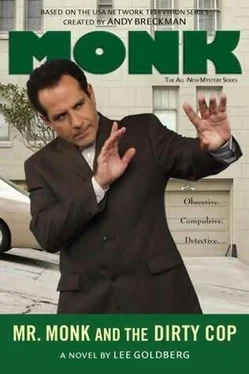


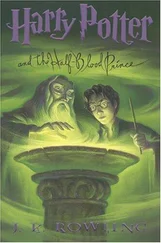
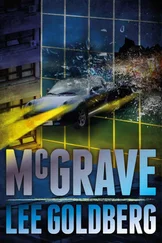
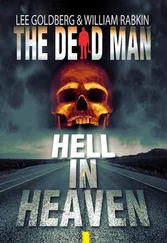

![О Генри - Фараон и хорал [The Cop and the Anthem]](/books/415669/o-genri-faraon-i-horal-the-cop-and-the-anthem-thumb.webp)




